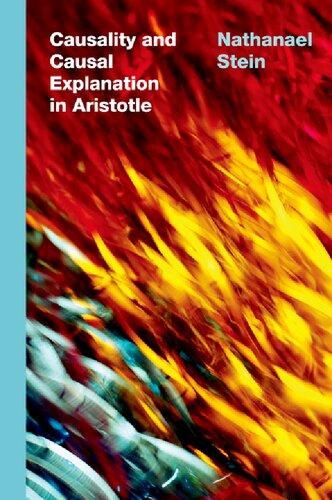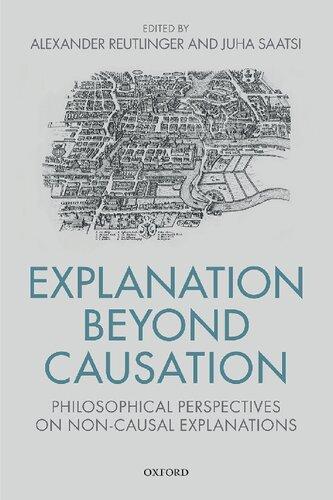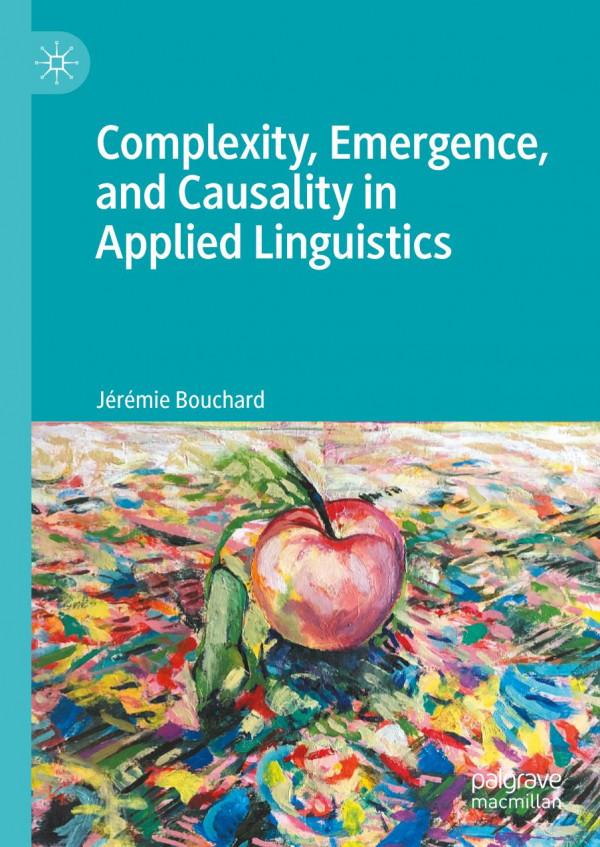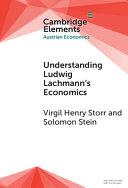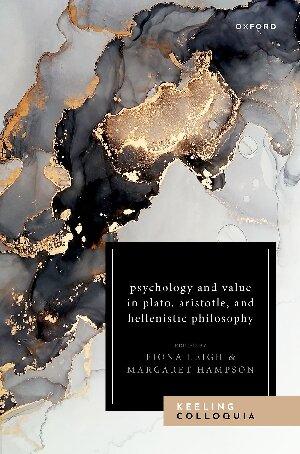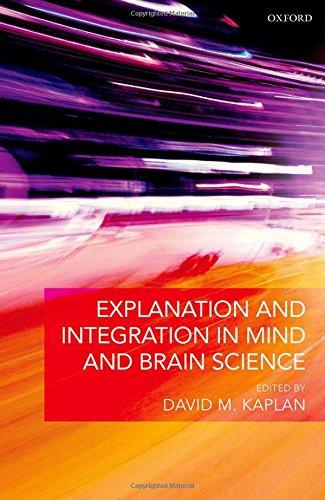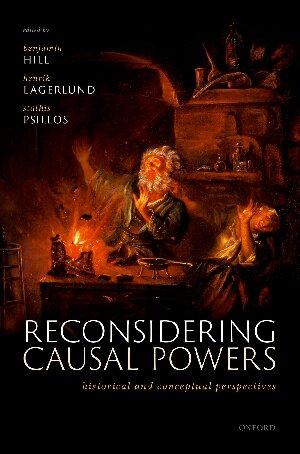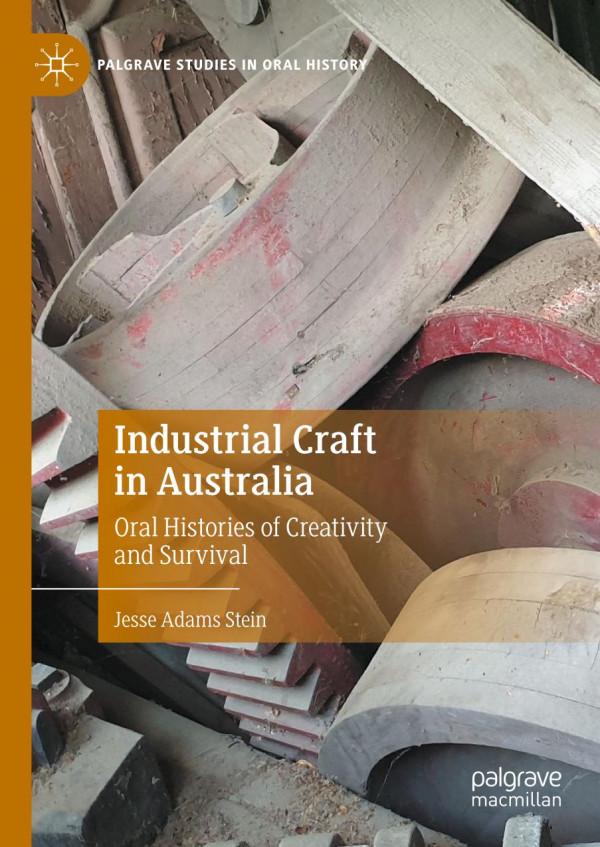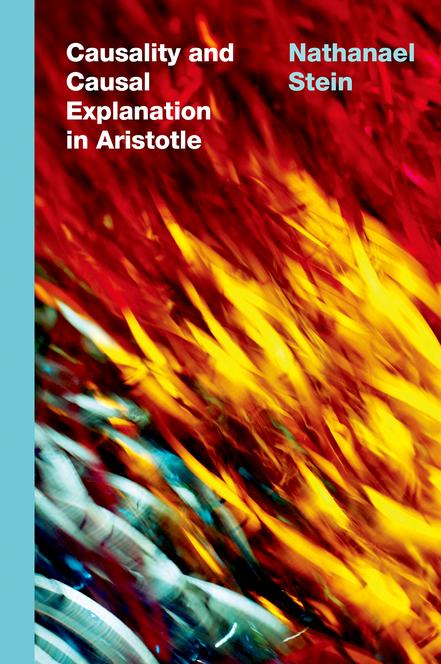Causality and Causal Explanation in Aristotle
NATHANAEL STEIN
Oxford University Press is a department of the University of Oxford. It furthers the University’s objective of excellence in research, scholarship, and education by publishing worldwide. Oxford is a registered trade mark of Oxford University Press in the UK and certain other countries.
Published in the United States of America by Oxford University Press 198 Madison Avenue, New York, NY 10016, United States of America.
© Oxford University Press 2023
All rights reserved. No part of this publication may be reproduced, stored in a retrieval system, or transmitted, in any form or by any means, without the prior permission in writing of Oxford University Press, or as expressly permitted by law, by license, or under terms agreed with the appropriate reproduction rights organization. Inquiries concerning reproduction outside the scope of the above should be sent to the Rights Department, Oxford University Press, at the address above.
You must not circulate this work in any other form and you must impose this same condition on any acquirer.
Library of Congress Cataloging-in-Publication Data
Names: Stein, Nathanael, 1976– author.
Title: Causality and causal explanation in Aristotle / Nathanael Stein. Description: New York, NY : Oxford University Press, [2023] | Includes bibliographical references.
Identifers: LCCN 2022062180 (print) | LCCN 2022062181 (ebook) | ISBN 9780197660867 (hardback) | ISBN 9780197660881 (epub) | ISBN 9780197660898
Subjects: LCSH: Aristotle. | Causation. | Explanation.
Classifcation: LCC B 49 1 .C 3 S 84 2023 (print) | LCC B 4 9 1 . C 3 (ebook) | DDC 122—dc23/eng/20230314
LC record available at https://lccn.loc.gov/2022062180
LC ebook record available at https://lccn.loc.gov/2022062181
DOI: 10.1093/oso/9780197660867.001.0001
Printed by Integrated Books International, United States of America
1.
PART I: C ONCEPTUAL STRUCTURE
PART II: ME TAPHYSICS
6. Causes, Kinds, and Transformations
6.1.
6.2.
6.3.
6.4.
6.5.
7. Causal Kinds and Causal
7.1.
7.2.
7.3.
7.4.
7.5.
8. Discreteness in Agent–Patient
8.1.
8.2.
8.3.
8.4.
8.5.
8.6.
8.7.
PART III: EP ISTEMOLOGY
9.
9.1.
9.2.
9.3.
9.4.
10. Causality and Epistemic Asymmetries
10.1.
10.3. Grasping Transeunt-Causal Interactions
10.4. Understanding Origin-Dominant Causal Profles
11.
11.1. Is Some Causality Just as It Appears?
11.2. Te Special Importance and Epistemic Status of Crafs
11.4. Summary: Causal Explanation and Aristotle’s Empiricism
Preface
Philosophical problems get some of their extra bite from the fact that they are two-faced: we are typically unsure what to say about the subject matter itself but also puzzled about the right way to approach it. Questions about causality and explanation have persistently been a focus of those two sorts of puzzlement for me—not knowing what to say about them, and not knowing how to start looking for answers. Now, Aristotle connects causality directly to the natural human desire to know, and I think it is, above all, that connection that is the source of its abiding interest: not just in relation to scientifc explanation or metaphysics, but in relation to almost any domain in which we have an impulse to understand and therefore to explain—and to feel like we have the explanation, even at the cost of self-deception. Tat impulse drives a whole range of behavior, from scientifc and philosophical inquiry, to historical explanation, all the way down to arguments about the meaning of election results, clickbait, and conspiracy theories. By nature, we desire to know, especially if there’s a chance that reality is diferent from the appearances.
If you’re a suspicious type, or just think it’s generally good policy to be circumspect even around your own ideas, then you may naturally start to wonder about the diference between good and bad explanations. As a philosopher, you may also start to wonder about good and bad approaches to explanation, and one way to get a grip on that problem is to cast a wide net, going back as far as possible. Aristotle is almost as far back as you can go for a self-conscious discussion of causality and causal explanation, and a great many paths in philosophy and its history lead back to his understanding of causes and their role in explaining the natural world.
But here, I think, we fnd ourselves in a strange position. On the one hand, Aristotle says so much about causes, and his thinking about them permeates so much of his work, that they constitute in a way a main point of entry into his theoretical and natural philosophy. On the other hand, they are so rarely a focus of his direct philosophical attention—so rarely a focus of argument as opposed to a tool for building an argument, or a framework for guiding an inquiry about something else—that it isn’t nearly as clear as one might have thought what his theory of causality really is. Tus, in ways that I will make
more precise in the Introduction, in spite or even because of its centrality to so much of his work, we cannot really answer some basic questions about Aristotle’s views on causality in the way that we can for Plato, Hume, Kant, and others.
Tis gap is not just unfortunate: given the role Aristotelian causality has played in the history of philosophy and science, and the role it is supposed to play in standard accounts of how modern thought and especially modern science have broken with the past, it really shouldn’t be allowed. Furthermore, when we look at contemporary discussions of causation, we fnd a proliferation of approaches with very little that counts as common ground or even common sense, especially as previously dominant approaches have come to be just one among many. So it would be of interest to get a clear idea of the theory that is in some ways the point of origin for theorizing about causality in Western philosophy and science, even for those aiming to fee it. For these reasons, I want to try to have a philosophical conversation about causality with Aristotle, a conversation of the kind that has proven so fruitful in other domains, but which has in some ways been missing here, however much attention has been devoted to the wide array of particular topics on which he brings his causal notions to bear.
In some ways this book goes all the way back to the beginning for me. Te route that I have just described, from generalized puzzlement about how one should satisfy one’s desire to know to wanting a better philosophical account of Aristotle’s theory of causality, is in fact a cleaned-up version of how I went from being a confused and dissatisfed undergraduate to whatever it is that I am now. Along the way I wrote my dissertation on causality and explanation in Aristotle; some of the ideas in it and from subsequent papers survive here in some altered form, but it represents a fresh start, and as far as possible I do not repeat here what I have said in print elsewhere, or cover the same ground. I aim instead to keep the discussion rather tightly focused on questions about the kinds of philosophical challenge for which Aristotle thinks that a correct account of causality is crucial, what he thinks that account is, and how we should assess it, both as a response to those challenges and as a philosophical theory in general. So while parts of this book will mainly interest specialists in ancient philosophy, the argument as a whole is meant for anyone interested in philosophical theories of causation and explanation and their history, as well as anyone who has read Aristotle’s thoughts on the topic of causality and come away wondering what it all really adds up to, and how we might engage with it.
Because this project goes so far back, the list of those to whom I’m indebted is long. Especially important for me are the debts that have less to do with the content of the book than with the people along the anythingbut-straight path from the beginnings of graduate school to actual employment who, for whatever reason, saw ft to give me their time, help, or just some much-needed encouragement on the basis of what must have been, at the start at least, very slight evidence of any promise. Tese include David Rosenthal, Nick Pappas, Michael Tooley, Bob Pasnau, David Charles, Terry Irwin, Lindsay Judson, Roger Crisp, Ursula Coope, and Jonathan Lear. Te biggest debts by far, though, accumulated over many years, are owed to Chris Shields. I wouldn’t know where to start.
As to the content of the book, I have received helpful feedback at various stages from a variety of audiences, including those at the Ancient Philosophy Seminar at the University of Oxford, Syracuse University, the University of Coimbra, the University of Campinas, the Center for the Aristotelian Tradition at the University of Notre Dame, and in many diferent contexts from colleagues at Florida State. I’m grateful for feedback from several readers, including Andrea Falcon, Devin Henry, Tomas Johansen, Michael Strevens, and especially Jessica Gelber and the participants at the workshop she organized at the University of Toronto, as well as Peter Ohlin at OUP.
More materially, it is a pleasure to thank the National Endowment for the Humanities, a fellowship from which made it possible for me to give this project my full attention.
Finally, I thank my friends and family, especially my mother, Cecile, and my wife, Hashi, for support—again stretching back to a time of great uncertainty and maybe unfathomable decision-making on my part. I dedicate the book to my father, Michael, who died right in the middle of the route I have described, whose love and life remain a constant source of good in my own.
Introduction
I.1. Te Basic Problem
Causality is at the heart of Aristotle’s philosophical project, and at the same time it so permeates his work that it can come to seem indistinguishable from that project as a whole, or whatever part of it one happens to be looking at. It is at the heart of his project because, in his view, it is at the core of understanding in the most ambitious sense: our highest cognitive achievement as rational beings, whether identifed as wisdom (sophia) or scientifc knowledge (epistêmê), is held to consist in coming to grasp the causes of things.1 At the same time, when he articulates, in Metaphysics I, how his own thought has advanced and improved upon that of his predecessors, he famously does so by casting the history of attempts at a rational understanding of the natural world in terms of the progressive discovery of the four causes (aitiai), the progress being nonetheless so limited that, he says, “in a certain way they have all been described before, while in another way, not at all” (Metaphysics I 10, 993a14–15). He thus thinks that causality is both at the heart of any theoretical undertaking and that the correct understanding of it is central to his own philosophical achievement.
For all that, and for all the infuence his claims about causality have had over the centuries, it is surprisingly difcult to say what the theory is, or whether it is even a theory at all. By this I mean that it is unclear, from what Aristotle says and what his commentators have said about it, (a) how he answers the main philosophical questions about causes to which he thinks his predecessors’ answers are fawed, and (b) how his answers bear on the main questions we confront in thinking about causality in general, such that they could be usefully critiqued, defended, developed, and compared with others.
1 ‘Wisdom’ is used in Metaphysics [Met.] I, ‘scientifc knowledge’ or ‘understanding’ (sometimes a better translation of epistêmê) is more ofen the term used elsewhere, as in the Posterior Analytics [APo.]. Regardless of the term, Aristotle consistently identifes grasping causes with a higher grade of cognitive achievement, close to if not identical with our primary aim as potential knowers.
Causality and Causal Explanation in Aristotle. Nathanael Stein, Oxford University Press. © Oxford University Press 2023. DOI: 10.1093/oso/9780197660867.003.0001
Here are some of the questions I have in mind. Granted that Aristotle is some kind of pluralist, in that he recognizes multiple diferent types or modes of causality, what is the basis of those distinctions, and why should we accept them? Are these causes subject to further distinctions or further unifcation? What are the criteria by which a certain relationship is to be considered a causal one, rather than, say, a correlation or a merely conditional relationship? What, precisely, are the metaphysical relationships between causes and their efects? How do we, on the basis of experience or observation, come to understand causal relationships, so that we are justifed in thinking that certain elements of nature are genuinely responsible for others, rather than simply correlated with one another? Tese are not just questions we wish to answer in our own, modern discussions of causality. As we shall see, they overlap considerably with the questions Aristotle puts to his predecessors, and they underlie the criticisms he makes of their views.
Now, it is easy enough to list “the four causes” by the names traditionally applied to them by later commentators—the efcient, formal, material, and fnal causes—and to analyze some examples of artifacts like statues and houses in terms of them.2 Indeed, a typical account of Aristotle’s theory of causality will do just that, and then show how Aristotle intends those modes of causality to apply to far less obvious relationships, such as the constitution of a natural organism and its relationship to its own body and bodily activities.
Such a presentation is fne as far as it goes, but it mainly serves to sharpen the difculties we face in understanding Aristotle’s views about causality and natural science. A reader may well fnd the initial examples quite clear, the later ones quite unclear, and then wonder at the end of it what has actually been presented—a theory? a doctrine? a schema? It has been called all of these, suggesting that commentators themselves are uncertain about it, and indeed there is good reason to be so without a sense of either an argumentative background or some other motivating concern—and Aristotle does not give one when he presents his distinctions. Te standard presentation does not provide answers to questions of the sort I have just raised.3
2 As is ofen noted, these labels are not Aristotle’s, though he has standard ways of referring to them—e.g., the efcient cause is ofen referred to as “the origin of the change” (hê archê tês kinêseôs) or “the principle from which the change originates” (hothen hê archê tês kinêseôs). Te labels appear to trace back at least to the second century CE: Ptolemy refers to four “well-known causes: material, acting, formal, and fnal” (“tessara eisi polluthrullêta aitia: hulikon poiêtikon eidikon telikon,” Musica, § 26 ln. 2).
3 Certainly, there is no simple way to cast the standard presentation as a theory, though commentators sometimes do this. Aristotle does not claim in these chapters that citing all these four
It is a much more straightforward matter, by contrast, to reconstruct the core philosophical commitments of Platonic, Humean, or Kantian accounts of causality, and to identify contemporary thinkers whose views constitute, deliberately or not, developments of those positions, than it is for Aristotle’s. Tere are, of course, many problems and disputes that arise in reconstructing or evaluating their views—I do not mean to suggest that the content of Kant’s theory of causality, for example, is especially obvious. I mean, rather, that the task of presenting their theories in such a way as to make reconstruction and evaluation possible is easier for these thinkers, in part because they raise and address philosophical questions about causality more directly than Aristotle does. When Plato has Socrates introduce the theory of Forms as causes in the Phaedo, for example, Socrates gives explicit statements about the types of questions he was investigating, why he was dissatisfed with his predecessors’ answers, what he thought a good answer should do, the logical status of his own answer, and how (and to what extent) he thinks that answer solves the problems he raises.4 Tat is, even if the content of the view needs clarifcation, the core claims are explicit and the philosophical context is well-marked. Further, when Plato returns to the general topic of the causal explanation of coming-to-be in nature in the Timaeus, he has Timaeus introduce several distinctions among types of causes; here, too, there is a clear causes is either necessary or sufcient for understanding any natural thing, or for understanding a special kind of natural thing (e.g., substance), nor does he list four causes for any one particular kind of thing, even an artifact. Te closest he gets to such a claim in Physics II is in chapter 7, 198b5–9, where he states that “we render the Why in all ways,” sketching all four types of answer, but this is not itself a claim that all or some particulars have all four types of cause, nor does it present reasons for thinking these four modes are necessary for causal explanations. Rather, it is supposed to follow from the preceding discussion, none of which involves a claim that they are jointly necessary or sufcient for explaining a particular entity or type of entity. In one of the rare passages where he does list four causes for a single entity (a human being), Met. VIII 4, 1044a32–b1, Aristotle only says that, when seeking something’s cause, since causes are spoken of in many ways, one must state all possible (kinds of) causes. He then immediately gives examples of cases in which there are fewer than four causes to be named.
4 Phaedo, 96a5–107b10, on which see, for example, Vlastos 1969; Fine 1986; Devereux 1994; Sedley 1998; Silverman 2002, ch. 3; and Dancy 2004, ch. 13. Tere is, of course, no shortage of treatments of Hume’s arguments in the Treatise and the Enquiry; recent treatments include Kail 2007. For a full-scale account of Kant’s theory of causality, see Watkins 2004. Modern treatments of a broadly Platonic character include, prominently those of Dretske 1977; Tooley 1977, 1987; and Armstrong 2016, ch. 6, who all account for causation in terms of nomological relationships between universals, despite Armstrong’s scruples about the nature of universals themselves. An explicitly neo-Kantian approach is framed by Price 2007 (see also the introduction to the volume in which it is included). Neo-Humean approaches are, of course, widespread, including not only the various types of counterfactual analysis but also more reductive regularity approaches inspired by Mackie 1974.
attempt to spell out the reasons for introducing these distinctions and what work they are meant to accomplish.5
Philosophical theories are also partially self-refective, however: they contain both claims about the topic at hand as well as a view, implicit or explicit, about how we should think or argue about that topic itself. Second-order questions of this sort include, for example: Why do we need a theory of causality at all? What problems or disputes is a theory of causality meant to resolve? What are the standards we might use to evaluate such a theory, and what types of evidence have the most authority?
Here again, at least the broad outlines of this second-order thinking are more explicit for philosophers like Plato, Hume, and Kant. Plato has Socrates, in the Phaedo, present his dissatisfaction with “materialist” accounts of natural phenomena, especially insofar as their explanations of generation and change display the kind of inadequacy he thinks generally afects perceptible reality—the kind of instability by which something alleged to be a source of beauty in one context will be a source of ugliness in another, making both claims suspect.6 Tus, according to the Phaedo, an adequate theory of causality must yield the right sort of stable relationship without which purported explanations crumble far too easily. Further, in the Phaedo, the Forms are explicitly presented as a hypothesis that would allow us to render the properties and changes of particulars intelligible, in the absence of the kind of teleological account that Socrates was hoping to get from Anaxagoras—that is, one that appeals to goodness or beauty (100a2–b9; cf. 101d1–e3). In the Timaeus, a teleological account of the right sort is given, and it is in this context that Timaeus distinguishes diferent types of causality: one intelligent cause that aims at what is best, and another, “necessity,” that does not.7 In this way, Plato gives us the theoretical status and the theoretical context of his main claims about causality, as well as some relatively clear adequacy conditions for a good account of the causes of coming-to-be.
Hume has a very diferent approach, of course, and his presentation enables us to see the resulting diferences in second-order thinking quite
5 See Strange 1985 and Johansen 2004, ch. 5.
6 See Phaedo 96e6–97b7 for the point that the types of cause to which these earlier thinkers appeal are subject to this kind of instability, though its precise nature is controversial. For the inadequacy of explanatory principles that do not appeal to Forms generally, see Rep. V, 478e7–479e5.
7 See especially Tim. 46c7–47c4 and 47e3–48b3. Necessity includes what is described as the “wandering” cause (hê planômenê aitia), as well as the notion of an auxiliary cause (sunaitia); on these and their relation to necessity, see Johansen 2004, ch. 5. Cf. also the general claim at 28a4–6, that everything that comes to be (pan to gignomenon) does so necessarily by virtue of some cause.
starkly: he thinks that we must come to terms with causation against the background of certain starting points concerning how anything at all comes to be present to the mind, which include a sharp cleavage between relations of ideas and matters of fact.8 Many post-Humeans, in turn, present their views against the background of the challenges he raises for the notion of a necessary connection, and especially the problem of avoiding the kind of skepticism they threaten, including, most famously, Kant.9 In Aristotle’s case, however, the second-order thinking is far less clear, despite the fact that he evidently thinks that his predecessors were not just incorrect about causes but were thinking about them in profoundly wrong ways—and the standard presentation does not really help here either.
I submit, then, that despite the abundance of texts and commentary we have about causes in Aristotle, we do not really have a good account of his theory of causality, in the sense I have described. In part I think this is because of the way causality permeates so much of Aristotle’s work, as mentioned at the outset—so ofen the frame, so rarely the focus—but there are other, more concrete reasons as well.
Aristotle’s own presentation in those canonical chapters of Physics [Phys.] II is surely partly to blame. Even though these chapters are the ones most explicitly concerned with general theses about causality in Aristotle’s surviving works, they are not a philosophical inquiry into causes as a distinctive or disputed subject in its own right, the way, say, Phys. III 1–3 is an examination of change (kinêsis), Met. VII an examination of substance (ousia), and Met. IX of actuality (energeia). Phys. II as a whole is concerned with nature (phusis) and the problems that arise in understanding it, especially as an object of scientifc inquiry. In Phys. II 3, without preamble or obvious philosophical motivation, he simply says that, having discussed the notion of nature and how the natural scientist difers from the mathematician—an odd-seeming question to which I return later (§ 3.2)—we should discuss the kinds of cause and how many there are (194b16–17). He presents a list with some examples— some obviously appropriate, some unclear—draws a variety of distinctions
8 See, canonically, Treatise I.III.II and Enquiry § 4.I.
9 More recently, many analytic philosophers have approached the question following the broad pattern applied to other general notions, with a focus on ordinary usage, the “method of cases,” and so on; see Paul and Hall 2013 for a sustained treatment. Others, approaching from the philosophy of science, build theories of causal explanation while eschewing the task of giving an analysis of causation itself, such as Woodward 2003, who rightly laments the fractured nature of contemporary discussions of causality across diferent sub-disciplines (3–4). Nevertheless, Hume’s critique continues to cast a shadow even over these other approaches.
and sub-classifcations, and then moves on to a discussion of chance and luck (chs. 4–6), before returning in II 7 to give a brief account of the way in which a natural scientist should approach causal explanation. In short, the standard presentation and its limits are no accident, since they mirror Aristotle’s own. Phys. II seems somehow both highly informative and philosophically silent at the same time, giving us a wealth of distinctions, examples, and specifcations, but no arguments, no claims to insight, and no sense that what is being revealed here is the key to what everyone else missed.10
Another reason Aristotle’s theory is unclear is no doubt the pluralism that lies at its core—indeed, it is pluralistic in ways that extend beyond the obvious fourfold distinction, as I shall argue. Tat pluralism has, along with modern assumptions about causation, made it possible to treat the modes separately, and so to assume that if Aristotle does aim to answer questions about causality, those answers lie in his claims about efcient or material causes. It also makes it more natural for scholars to examine topics in a piecemeal way—to look at his account of the causes of substance (ousia), or teleological explanations in biological contexts, for example—especially since for these topics Aristotle does indeed make his motivating concerns and his argumentation more evident.
Finally, there is the persistent question of the relationship between Aristotle’s mature thinking about causality and natural science in the Physics and Metaphysics [Met.], on the one hand, and his account of scientifc understanding in the Posterior Analytics [APo.], on the other.11 Te latter work presents a theory of scientifc demonstration with causality at its core: the
10 Aristotle does, of course, extensively discuss his predecessors’ views and point out their shortcomings relative to his own. In particular, Metaphysics I contains a rich source of understanding for Aristotle’s views about the defects of his predecessors’ theories; Phys. I presents a case for recognizing matter and form as principles of change, against the background especially of earlier accounts (and rejections) of change; and Phys. II 8 defends the idea that nature acts for the sake of something—the thesis of so-called natural teleology. But these piecemeal, and in some cases notoriously unsatisfying, discussions do not give an account motivating or defending the fourfold distinction itself either, nor do they tell us exactly how Aristotle’s conceptions of these causes are distinctive enough that it makes sense for him to say that in a way they have not even been discussed at all before him. In the Metaphysics the causes function as a lens for clarifying the nature of wisdom: his discussion of his predecessors confrms for us that, since no other modes of causality have been identifed other than the ones described in the Physics, we can be satisfed with using them as organizing principles for the search for wisdom. He explicitly refers us to the Physics for a full discussion of the causes at Met. I 3, 983a34. Te discussion of principles in Phys. I likewise tends to emphasize the similarities between Aristotle’s account and the “principles” of his predecessors (e.g., that they all recognize contraries as principles), rather than the diferences. Finally, the enormously controversial arguments for natural teleology in Phys. II 8, on most readings, make use of a prior understanding of teleology which, he argues, extends to nature and natural things (see § 1.2).
11 Te Posterior Analytics is universally regarded as an early work, and earlier than the Physics; Barnes 1994, xiv supposes it was written while Aristotle was still at Plato’s Academy.
middle terms of demonstrations are supposed to pick out causes of what they demonstrate, and essences are among the frst principles of demonstration. Tese accounts of demonstration and essence have much to say about causes and causal explanation, but they do not present a theory of causality as such—for the most part the nature of causality appears to be taken for granted. Nor is it clear, notoriously, how exhaustive this account is meant to be as an account of causal explanation (i.e., of the ways in which we appeal to causes to render phenomena intelligible), or how much of it is meant to apply to Aristotle’s natural scientifc work. Even if we do not claim, as some commentators have, that Aristotle abandons the Analytics model when he turns to natural science, we nevertheless cannot assume that the APo.’s discussion of demonstration is informed by Aristotle’s mature thinking about causality—as we shall see, there are good reasons to think that it is not. Tus, there is a great deal of difculty in linking Aristotle’s most sophisticated discussions of causality with his most developed account of scientifc explanation, despite the prominence of causal notions in the latter.
Tere are, then, good textual and philosophical explanations for the fact that it is difcult to discern a clear and unifed theory of causality in Aristotle’s general remarks about causes, and for why scholars and philosophers have not reconstructed one. Yet he is explicit that his predecessors only had a partial grasp of whatever causal principles they did identify, and that his own achievement does not lie simply in having collected the whole set. Indeed, for each mode of causality, Aristotle is explicit that it has not just been imperfectly grasped, but ignored or outright rejected by some of his predecessors.12 Such an insistence makes little sense without some general refection as to what makes for an adequate understanding of causality and causal explanation. Tus, we also have good reason to suppose that Aristotle does have a general theory, at least to the extent that what he says about causes and causal explanation is guided by a reasonably determinate sense of how his own views about causes are superior to those of his predecessors. Tracing this line of thought is the main goal of this book.
Commentators have raised a number of interlocking questions, however, about whether, broadly speaking, it is appropriate to take Aristotle’s concerns with aitiai to match with our concerns about causes, which would imply that tracing this line of thought would not in fact yield a theory that is usefully compared with modern theories of causality. It is common, for example,
12 I discuss these passages in Chapter 2.
to note semantic worries about whether ‘aitia’ really means or should be translated as ‘cause’, rather than ‘because’ or ‘explanation’. Tese worries are sometimes coupled or confounded with conceptual worries about whether Aristotle’s claims about aitiai (or Plato’s for that matter) should be interpreted as claims about causes (i.e., whether their concept of aitia, if they have one, is a match for our concept of cause, if we have one). Tere are, further, more theoretical worries about whether certain modern assumptions about causes are incompatible with Aristotelian or Greek assumptions about aitiai, which would suggest that the modern theoretical enterprise is in some important way diferent from the ancient one.13
Te semantic claim by itself is not compelling as long as we do not insist that ‘cause’ must mean what recent Anglophone philosophers have taken causes to be, and so I will follow the tradition of translating ‘aitia’ and ‘aition’ as ‘cause’ except where noted.14 Te more substantive worries about conceptual and theoretical overlap are not borne out either, as I hope will be clear from what follows. Even at this stage, however, there are good reasons to
13 For example, whether Aristotle’s efcient causes are “things that do things to other things,” as M. Frede 1980 contests, or whether fnal causes can genuinely be responsible for things that are temporally prior to them, or whether we must assume causes are events.
14 Occasionally ‘explanation’ is indeed better, but not because there is anything misleading about ‘cause’ in most contexts. For what it is worth, the Latin ‘causa’ apparently frst entered several Romance languages as meaning “thing” (and is the ancestor of ‘chose’ in French, ‘cosa’ in Spanish); later, it re-entered those languages, and English, as ‘cause’, with the technical sense from its use in medieval philosophical discussions, having been used to translate ‘aitia’ into Latin from the classical period onward (OED). Tere was thus no decision to use an antecedent English word ‘cause’ to translate Aristotle’s ‘aitia’; rather, ‘cause’ owes its usefulness as a translation of ‘aitia’ to its intimate history with the term. Discomfort with the usage seems to have begun only in the late nineteenth and early twentieth century, despite criticisms of Aristotle’s own distinctions stretching back to Teophrastus. Grote 1872 uses ‘cause’ throughout his book on Aristotle, without noting any particular difculty or awkwardness of translation, and Mill 1872, in his Logic, is comfortable using ‘cause’ in his discussion of Aristotelian as well as “Scotch” causes. But Heath 1876 criticizes Mill for this usage, and Wicksteed and Cornford’s 1929 translation of the Physics warns us that “it does violence to the English idiom to call the material out of which a thing is made, or the distinctive attributes which defne it, its ‘causes’. . . . Paraphrase or barbarism ofer the only escape from using English words in a sense that they cannot really bear” (126–27). Among recent commentators, Ross 2004, Ackrill 2001, 111, M. Frede 1980, Annas 1982, Barnes 1994, 89, Charlton 1992, 98, Hankinson 1998, 132, Lear 1988, 28, Moravcsik 1974, 1975, Santayana 1925, 183–84, Sorabji 1980, 40, and Vlastos 1969, 294f. all note that the translation requires qualifcation in one way or another, but their claims range from minor caveats (Ross, Ackrill) to sharp warnings that the translation is deeply misleading (Vlastos, Frede, Annas). On the other hand, some commentators have remained unmoved: see, e.g., Gotthelf 1987a, Freeland 1991, and Furley 1996. Interestingly, the seventeenth-century authors of the so-called PortRoyal logic (Arnauld and Nicole 1981) make the opposite complaint about scholastic defnitions of cause, which they claim are imprecise and do not seem to capture all of the kinds of cause, so that it is better to leave ‘cause’ undefned—“l’idee que nous en avons étant aussi claire que les défnitions qu’on en donne” (238). Tere is, of course, no point in arguing that ‘cause’ and ‘aitia’ mean the same thing, but nor do we make progress on the more substantive questions by suggesting that, for semantic or conceptual reasons, Aristotle’s claims about aitiai are really claims about something other than causes. For a clear survey of the history and evolution of the term ‘aitia’ itself, see Natali 2013.
suppose that the basic problems underlying Aristotle’s inquiries are essentially the same as the ones underlying modern ones.
Tere are many reasons for wanting to understand the nature of causality, but the presentation in Met. I expresses two of the central ones. First, causality is at the heart of explanation and the pursuit of knowledge or understanding, especially in natural science. A good account of causality, Aristotle clearly thinks, is required if we are to understand and justify a broad swath of our knowledge-seeking practices; to say what kinds of explanation are good or bad, in what contexts, or for which topics; to distinguish genuine from pseudo-explanations; to know what kinds of things can be causally explained, and what cannot; to know what can be explained at all and what must be understood some other way, or can only be described.
Second, as Aristotle’s exposition makes clear, one’s approach to causality bears on fundamental questions about appearance and reality, and how they relate to one another. Imagine a debate between three parties: one tells us that to understand the appearances we confront in everyday life and in observing the natural world, we need to seek the material stuf that underlies those appearances and controls them from below; another tells us that we need to fnd the abstract patterns and ultimate realities that govern the world of passing appearances, which can only be grasped by the mind and not the senses. A third interjects, and tells us that the other two are both wrong: we can grasp and explain fundamental reality without “descending” or “ascending” to a diferent ontological plane, and yet still arrive at a profound type of understanding, as “scientifc” or theoretical as we might wish, rather than a merely detailed description of the shifing appearances we call the natural world. Tis is a philosophically dramatic clash of viewpoints, and it is more or less the story Aristotle tells us about himself and his predecessors.15 He is explicit that a proper understanding of causality itself is what allows us to see this third way, yet we do not have his argument, really, as to how his own account of causality helps ground his contention. Like him, however, we tend to assume that ultimate reality and genuine causality go together, and it is common to argue that some phenomenon is mere appearance, or of ontologically lesser status, or epiphenomenal, because it is not causally efcacious or arises incidentally from diferent causal processes that are genuine.
15 Indeed, some of the puzzles in Met. II, especially the sixth (998a20–b14) and eleventh (1001a4–b25), set up an opposition between the Platonist and reductive materialist approaches in just this way, such that the dissolution of the puzzle will require seeing how each is mistaken.
Tus, while one might raise questions about the extent to which Aristotle’s accounts of aitiai ft with or diverge from contemporary accounts of causation, the motivations underlying his refections on aitiai are of clear philosophical concern to us, and they connect very closely to basic questions about causality.16 In view of his pluralism and the broad but still limited scope he places on causal explanation, his view is also of interest to recent debates about the nature and scope of non-causal explanation.
Tere are two further motivations for trying to formulate Aristotle’s theory of causality in the unifed way I have proposed. First, there are a number of persistent but seemingly more circumscribed puzzles and controversies in Aristotle’s work which, I think, are best understood and answered in light of a general theory of causality rather than independently of it. Tese include questions about the scope of his commitments to teleological explanation in nature, his understanding of causal powers and causal action, the nature of his essentialism, and his commitment (or lack thereof) to the so-called Principle of Causal Synonymy (the principle that only something F can be a genuine cause of something else’s being F), as well as his frequent but sometimes obscure claims that formal and fnal causes are “the same” or “one.” It is valuable to pursue piecemeal analyses of various types of causal relationship in Aristotle’s work, but problems like these also call for a synthetic understanding that treats them in relation to a theoretical whole, absent any reason to think this cannot or should not be done.
Second, Aristotle’s four-causal framework is ofen identifed as at the core of the pre-modern, pre-scientifc view of nature that was abandoned or at least thoroughly revised by the scientifc revolution. Even though it has been well-established that the most radical versions of this way of reading the revolution are caricatures, there is an enduring supposition, even among philosophers and historians of philosophy, that somehow the Aristotelian conception of causality, especially in light of its commitments to hylomorphism and teleological causality, cannot really be separated from
16 Tese reservations about aitiai and causes should be further distinguished from the one considered in a moment, namely, whether Aristotle’s views about causes are so tightly connected to a pre-modern understanding of nature that they do not apply in a modern scientifc context. Tis question is important and substantive, but it is sometimes miscast as a question about whether Aristotle’s notion of aitia is really a notion of cause, or whether his word ‘aitia’ is appropriately translated by ‘cause’ in English. Given the philosophical motivations I have just described, the idea that for conceptual reasons, in his investigations of ‘aitiai’, Aristotle is engaged in a deeply diferent project than the one in which Hume, Kant, Mackie, Hart and Honoré 2002, Armstrong, Lewis 2000, or Woodward 2003 are engaged when discussing causation, simply is not true in any worthwhile sense.
a pre-scientifc understanding of nature and its metaphysics.17 At the same time, when we read these chapters of the Physics or Metaphysics I, many of their main statements seem plainly reasonable. Indeed, for all the worries about their suitability for a modern scientifc worldview, all of Aristotle’s four causes continue to be deployed in causal explanations in both scientifc and philosophical contexts, in various guises, whether separately or together: material and efcient-causal explanations ofen stand alongside teleological and functional explanations, various forms of essentialism are developed and defended, and many examples of what are now ofen called “grounding” explanations are recognizably types or descendants of what Aristotelians would have called material- or formal-causal explanation.18 But the problems that made Aristotelian views of nature seem inconsistent with modern science do not really turn on whether or not all of these relationships deserve the label of ‘cause’, so it remains unclear how and how much our own explanatory theories and practices are really diferent from Aristotle’s. Part of the difculty in assessing those diferences lies again, I think, in the fact that presentations of Aristotle’s account of causality tend to be so closely bound up with particular applications or cases, especially that of substance, that it is simply not clear how much paradigmatically Aristotelian metaphysics is really embedded in Aristotle’s claims about causes.19
An account of Aristotle’s theory of causality therefore holds the promise of clarifying more local questions about his views, as well as answering broader questions about the continuities and discontinuities between ancient, medieval, and modern scientifc approaches to the natural world and our understanding of it.
17 For an account of the development of early modern science which is sensitive to the ways in which it was and has been taken to reject various strands of Aristotelian natural science, see Shapin 1996. For an account of some key developments between Scholasticism and early modern conceptions of causality, see Schmaltz 2008, 2014. For a survey and analysis of diferent historical claims about “the Scientifc Revolution” and its relation to Aristotelianism, see Cohen 1994, ch. 4.
18 Te nature and scope of “grounding explanations” are controversial and the subject of an ever expanding literature. See the contributions in Raven 2020, many of which note the connections to Aristotle and other ancient authors.
19 To cast some doubt on this tendency, it is enough to note that Aristotle only mentions substance (ousia) once in Phys. II 3–9, and only to make the point that a teleological explanation should explain something in virtue of its being better not unqualifedly, but in relation to a substance. Tis is the very last line of chapter 7 (198b9). Tere are only a handful of other uses in book II, all of which are in chapter 1, which is a dialectical study of the notion of nature—a context in which Aristotle ofen uses the term for substance in describing the views of his predecessors.
I.2. Outline
Tis study thus has two main motivations: to understand Aristotle’s theory of causality in the philosophical context of his critiques of his predecessors’ views about causation and causal explanation, and to understand it in such a way that it can fruitfully be considered as a philosophical approach alongside broadly Platonic, Kantian, and Humean approaches. Tese aims are interdependent, of course.
Because of the various ways in which causality permeates Aristotle’s work so thoroughly, however, it can seem as though such a project would require nothing short of a full reckoning of his theoretical philosophy, and so would in the end accomplish little. Nor can we dismiss the skeptical hypothesis that Aristotle does not really have a full-blown theory, as opposed to a reasonable and fexible framework that he applies and extends in a piecemeal way—not randomly, but not because of any overarching general account of causality, explicitly or implicitly held.
I think, however, that we can see a general theory at work that answers to these main motivations, and that we can isolate the basic elements of his answers to these main philosophical questions we tend to raise about causality, especially in light of the ways Aristotle himself raises and recognizes them. Te only way to decide the question is to see what results from the attempt.
My strategy is frst to animate the key chapters about causality, namely Phys. II 2–9, but especially 2–7.20 As I have noted, these chapters present Aristotle’s distinctions without philosophical motivation or defense, but we can see what they accomplish, in theoretical terms, by reading them against their philosophical background, particularly the criticisms Aristotle makes elsewhere of his predecessors that connect most directly to questions about causality, as well as the general constraints concerning causation and explanation that he describes in other works, such as On Generation and Corruption, the Metaphysics, and the Posterior Analytics. Against this background, several features of those key chapters stand out, which allow us to delineate some important conceptual claims Aristotle makes about causes, and which govern the four-causal framework as a whole. Tis is the task of Part I.
20 While Phys. II 3 contains the canonical presentation, II 2 has already, in responding to the demarcation challenge in relation to mathematics (discussed below), introduced some key points about all four modes of causality.
In each of Parts II and III, I then frame a primary question about causality which is also at the heart of Aristotle’s critique of his predecessors, and argue for an interpretation of the way the views in Phys. II and III express commitments that respond to those questions and problems. Part II raises a metaphysical question, while Part III focuses on an epistemological one.
In more detail, the three parts of the book run as follows:
I.2.1. Part I
Afer briefy discussing the canonical chapter of Phys. II 3 and the problems it raises, both by itself and in the context of the whole line of discussion in Phys. II (Chapter 1), I turn to an examination of Aristotle’s criticisms of his predecessors, focusing especially on criticisms that relate to causality (Chapter 2). Tose criticisms mainly divide into two sorts. Some are motivated by worries about how the natural world can be a genuine object of scientifc understanding (e.g., in light of worries about whether something fundamentally characterized by change and instability, as nature is, can be fully understood). Others relate to metaphysical worries about the relationships between certain types of proposed causal principle and the phenomena of which they are claimed to be causes. Next, I turn to a different set of background philosophical considerations pertinent to Phys. II 3, having to do with general constraints on explanation and explanatory practice (Chapter 3).
I then return to Phys. II 2–7 to highlight the philosophically signifcant claims of these chapters against this background, and I assess their implications for my main questions (Chapter 4).
Tree key interpretive claims emerge from this part, which in diferent ways refect Aristotle’s critiques of his predecessors’ views:
(1) Aristotle, I think, diagnoses many of the problems with his predecessors’ accounts of nature as stemming their commitment to a kind of reductionist approach, requiring what I call a special metaphysics for causal explanation. Tis approach typically connects causal explanation with a special ontology and/or privileged relationships to such an ontology. Tis reductionist approach, as I argue, is pursued in diferent ways by Platonists and materialists alike, though its precise
nature, and the problems Aristotle sees with it, must be distinguished from other types of reductionism.
(2) Te schema presented in the Physics represents an extension of a simpler schema given in Posterior Analytics II 11—simpler in that it appeals to fewer and more basic concepts. Tat simple schema presents four ways of accounting for a situation in which something answering to a predicate is said to hold of some subject—that is, in some appropriate sense of the term, a fact. Phys. II 2–7 take these distinctions and extend them to the task of explaining things and the changes they undergo rather than true predications, in particular to the more controversial task of stating the causes that are intrinsically (kath’hauto) connected to stable kinds of change or thing, whether natural or artifcial—that is, to things that are not co-incidences or otherwise unique.21
(3) While Aristotle’s four-causal schema is ofen loosely described as being comprised of four distinct metaphysical roles or relationships, this is inaccurate and misleading in important ways. Tey are rather what I shall call second-order roles, since they each cover what Aristotle thinks of as clusters of importantly diferent and more determinate metaphysical roles and relationships—and the diferences matter a great deal for a variety of reasons that have not been appreciated. Tus, the schema in Phys. II represents an ambitious extension of a logically more basic (and possibly earlier) schema for explaining facts of any sort, to a more metaphysically committed task of explaining
21 Here and throughout the book I use ‘intrinsic’ as a placeholder translation of ‘kath’hauto’, following Irwin 1988, Freeland 1991, and Meyer 1992, among others—and only in this way except where noted. ‘Kath’hauto’ (“with respect to itself”; ofen translated ‘per se’ or ‘in its own right’) is usually contrasted by Aristotle with ‘kata sumbebêkos’, literally something like “with respect to being placed or occurring together,” ofen translated by ‘per accidens’, or ‘accidental’, ‘incidental’, or ‘coincidental’. It is also contrasted, more rarely, with ‘kath’heteron’, for example, at De An. I 3, 406a4— “with respect to another,” or ‘per aliud’. I discuss some of these contrasts later in § 3.1. Tese are all quasi-technical terms, and Aristotle’s use of them is sometimes fexible or unclear; all translations have their own drawbacks. ‘Intrinsic’ is similarly quasi-technical, and usually not bad, but it should above all not be taken to imply that something is internal. In Aristotle’s translated usage, then, a doctor is normally an intrinsic and external cause of health in a patient, and so Aristotle’s claim in Phys. II 1 is that to have a nature is to have an intrinsic origin of change which is also internal in some important sense. Tere is a modern usage of ‘intrinsic’ in relation to causation which is diferent, though, I think, adjacent to this one; for that sense see, e.g., Menzies 1999, Hall 2004b. I will use ‘co-incidental’ for ‘kata sumbebêkos’, since ‘intrinsic’ requires a contrasting English term, and I am reserving ‘extrinsic’ for broader work (see again § 3.1); here again the term is something of a placeholder, since not everything that ‘co-incides’ with something else in this usage is a mere accidental concomitant.
regularly occurring phenomena in terms of their intrinsic causes. It is nevertheless far more metaphysically neutral than it may appear and is ofen presented.
I.2.2. Part II
Te metaphysical neutrality of the schema in one sense makes it fexible but also raises worries about explanatory power. If there is no special metaphysics for causality, what account can we give of the relations between causes and what they cause? Tese worries derive from a more general set of tensions surrounding the metaphysics of causation, to which Hume’s famous rejection of the notion of “necessary connexion” is one kind of response. Te tensions are broadly due to the fact that causes and efects are somehow supposed to be connected tightly enough to ensure that their relationship is not one of mere co-incidence or regular co-occurrence, but not so tightly connected that the phenomenon collapses into a kind of self-realization of an efect.
Finding an acceptable compromise between these various pulls is, I suggest, one of the main problems for giving a good account of the relationship at the core of the metaphysics of causality: that between causes and what they cause. Aristotle himself, in various guises, raises some of these same concerns for his predecessors. How, then, does he think causes in nature relate to what they cause, and how can his account avoid the metaphysical problems he raises for his predecessors that pertain to the tension I have described?
Since Aristotle, on my account, rejects the appeal to a special ontology for causal explanation, and since he is also committed to a kind of metaphysical pluralism within each mode, he does not think that there is one universal kind of connection between, say, material causes and what they cause. Rather, I argue, his position involves extending the features commonly associated with essentialism about natural kinds to the whole range of regular phenomena that have intrinsic (i.e., kath’hauto, or per se) causes (Chapter 6). Tese include not just substances and the processes by which they are generated and destroyed but also those changes, activities, and states of afairs which always or usually occur in the same way, by the same causes. For these phenomena, too, the natural scientist should give a so-called real defnition, that is, one which specifes what they are by stating why they are— by stating their intrinsic causes. I argue that Aristotle does just that for different kinds of change, giving a brief and cryptic statement of how this is to
